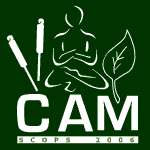 Standard therapies are of limited value for obsessive compulsive disorder (OCD).
Standard therapies are of limited value for obsessive compulsive disorder (OCD).
Researchers at Swinburne University of Technology, in Australia, reviewed the value of CAM, self-help techniques, and lifestyle interventions.
First, the details.
- 14 studies were included.
- The quality of nutraceutical studies (nutrients and herbal medicines) was rated as high, whereas mind-body or self-help studies were poorer.
And, the results.
- OCD
- Mindfulness meditation, electroacupuncture, and kundalini yoga were beneficial based on results from poorer studies.
- Kundalini yoga is a physical, mental, and spiritual discipline for developing personal energy and sensory awareness.
- The nutrient glycine, milk thistle, and borage also had positive results based on better designed studies.
- St John’s wort, eicosapentaenoic acid (an omega-3 fatty acid), and meridian-tapping were ineffective.
- Meridian tapping is an “umbrella” term applied to energy-based tapping therapies.
- Mindfulness meditation, electroacupuncture, and kundalini yoga were beneficial based on results from poorer studies.
- Trichotillomania: An impulse control disorder in which a person repeatedly pulls out hair for non-cosmetic reasons.
- N-acetylcysteine was effective based on results of a rigorous study.
- The self-help technique “movement decoupling” also was effective.
- Mixed evidence was found for myo-inositol (nutritionally active form of inositol).
The bottom line?
Yes, several studies were positive, but these lack confirmation from subsequent better designed studies. The numbers of patients treated were also small.
The authors concluded, “Preliminary evidence however is encouraging, and more rigorous research.”
6/1/11 21:43 JR